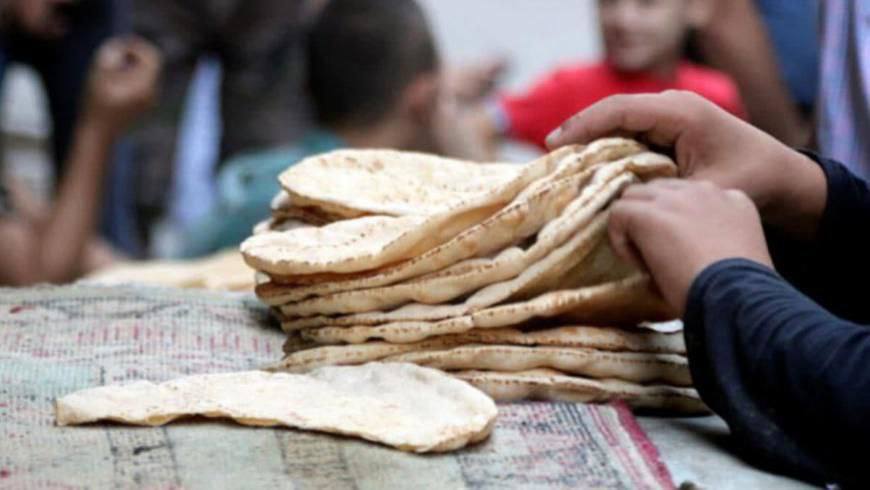On Wednesday, the authorities of the Syrian Salvation Government (SSG, affiliated with Hay’at Tahrir al-Sham, editor’s note) reduced the weight of a bundle of bread by 50 grams, for the second consecutive time in one week. The reduction has negatively impacted civilians’ lives.
“This afternoon, the SSG’s bakeries and grain department informed us that the weight of the standard bread bag for consumers tomorrow will be 450 grams instead of 500 grams, sold at 2.5 Turkish Lira,” said a reporter in rural Idleb.
The reporter explained that the reason for this weight reduction is the Turkish Lira’s depreciation against the U.S. dollar, a change that had affected the prices of all materials and inputs of the bread industry such as “flour, yeast, sugar, diesel, and packaging.”
Read Also: On the Brink of Famine, Syrians Reduce Meals to “Essentials”
On November 10th, Syrian Salvation Government authorities similarly reduced the bread bag weight by 50 grams, making it weigh 500 grams instead of 550 grams, at a price of 2.5 Turkish Lira.
Alternatively, the SSG justifies the weight reduction or price hike with reference to the high cost of the key materials from the exporting country, or due to the depreciation of the Turkish Lira (which is used in the region) against the U.S. dollar.
The sustained high prices of all daily essentials—such as “bread, food, vegetables, animal derivatives, fuel, and transportation”— have burdened civilians living in opposition-controlled areas in northwestern Syria, especially as winter approaches and temperatures begin to drop.
In the liberated areas of northwestern Syria, a worker’s daily income ranges from 20 and 30 liras, which does not translate into effective purchasing power due to high prices. This situation has forced many to search in rubbish bins and landfills for plastic, metal, or cardboard waste to scavenge and sell in order to meet some essential living costs.
This article was translated and edited by The Syrian Observer. The Syrian Observer has not verified the content of this story. Responsibility for the information and views set out in this article lies entirely with the author.


